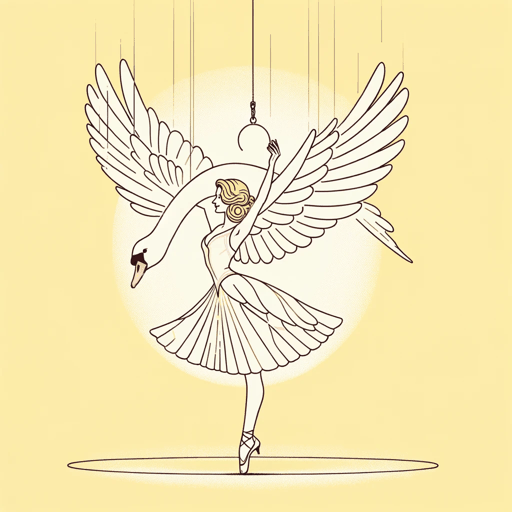50 pages • 1 hour read
Angela CarterNights at the Circus
Fiction | Novel | Adult | Published in 1984A modern alternative to SparkNotes and CliffsNotes, SuperSummary offers high-quality Study Guides with detailed chapter summaries and analysis of major themes, characters, and more.
Important Quotes
“For, in order to earn a living, might not a genuine bird-woman—in the implausible event that such a thing existed—have to pretend she was an artificial one? He smiled to himself at the paradox: in a secular age, an authentic miracle must purport to be a hoax, in order to gain credit in the world.”
(Part 1, Chapter 1, Page 17)
This quote introduces the paradox of truth in illusion and foreshadows the complex nature of Fevvers’s character. It also sets up the theme of constraints by the observer; Walser thinks that perhaps Fevvers must masquerade as a hoax to gain credibility in the eyes of her audience, who define her with their perceptions.
“—and for seven long years, sir, I [Fevvers] was nought but the painted, gilded sign of love, and you might say, that so it was I served my apprenticeship in being looked at—at being the object of the eye of the beholder.”
(Part 1, Chapter 2, Page 23)
This quote indicates the main problem that Fevvers must resolve in her character arc: her objectification and entrapment in an eternal performance for an audience whose perceptions imprison her. It also reinforces the theme of the constraints of the observer; as a character, Fevvers is continually subjected to performance, and the persona she constructs comes from trying to control others’ perceptions of her.
“Her voice. It was as if Walser had become a prisoner of her voice, her cavernous, sombre voice, a voice made for shouting about the tempest, her voice of a celestial fishwife. Musical as it strangely was, yet not a voice for singing with; it comprised discords, her scale contained twelve tones. Her voice, with its warped, homely, Cockney vowels and random aspirates. Her dark, rusty, dipping, swooping voice, imperious as a siren’s.”
(Part 1, Chapter 2, Page 46)
This quote shows that Walser is guilty of considering Fevvers as a symbol or idea rather than a person in the beginning of the novel. Additionally, it demonstrates the contradictions in Fevvers’s character through a physical description of her voice; this reinforces the motif of juxtapositions that govern the development of characters and themes in the novel.
Related Titles
By Angela Carter



